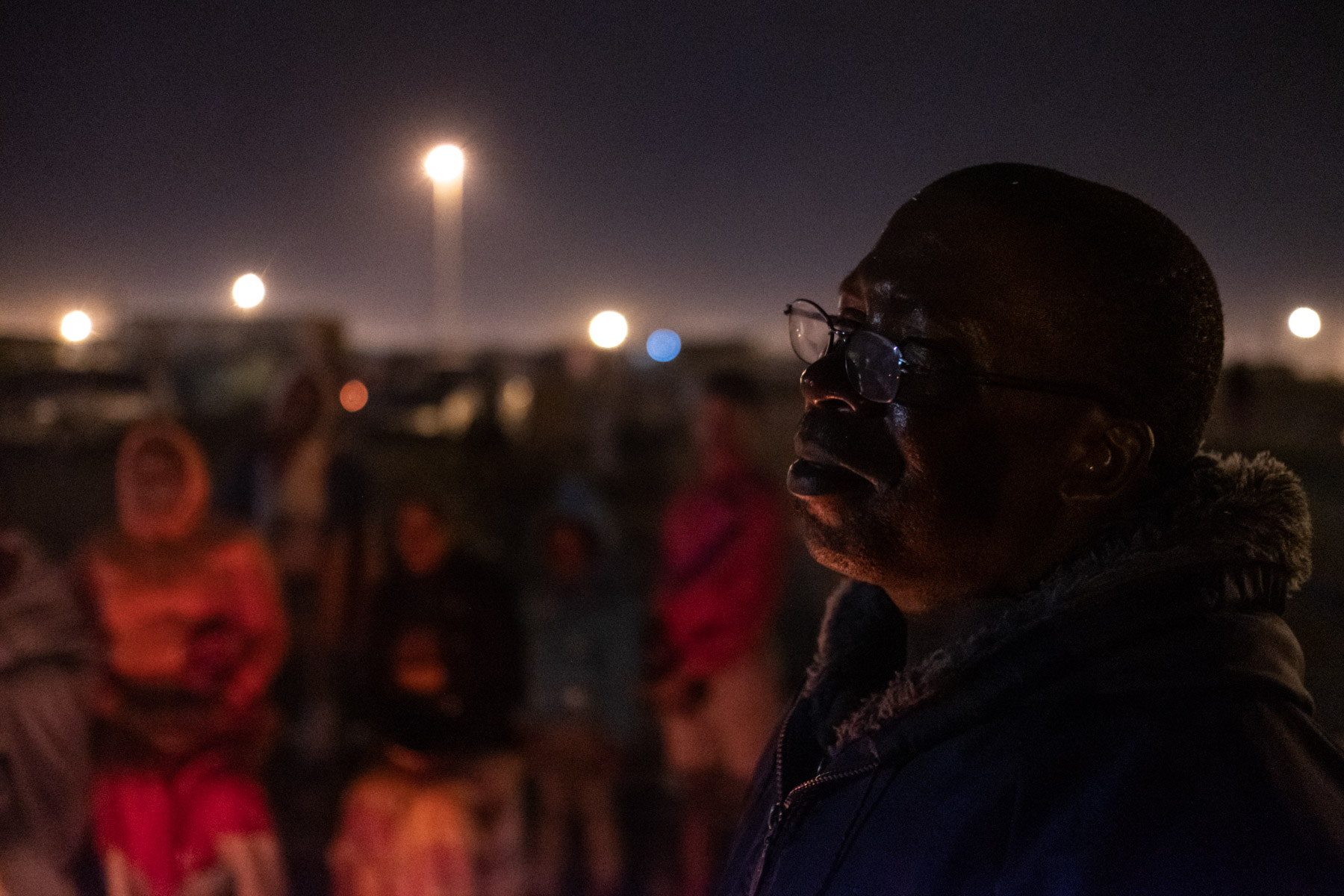Lockdown means ‘eviction’ for many back-yard dwellers
Residents of the Empolweni shack settlement are allowed to rebuild homes demolished by the City of Cape Town. But what led to some of them occupying the land in the first place?
Author:
23 April 2020

Early in April, the City of Cape Town’s anti-land invasion unit demolished structures in the Empolweni shack settlement, leaving residents homeless.
On the night of 16 April 2020 groups of people were huddled around dozens of fires on the land where the settlement existed just a week ago. They were ready to spend another night sleeping without cover, just as they had for the previous week.
The evictions help shed some light on the quandary facing back-yarders during lockdown.

Thapelo Mashinini, Sylvia Nobeba and Lulamile Paleso were among those outside. They sat around a fire where Paleso’s shack used to stand. “They say it’s lockdown, and we must stay inside our homes, but then they take our homes,” says Paleso.
Like many of the residents of Empolweni shack settlement, Paleso was a rent-paying back-yarder in Makhaza. He worked in scaffolding for a rope access company but his last employment contract ended in December, and he has been out of work since then. “I don’t have a mother. My grandmother in the Eastern Cape took money from her pension to help me pay rent,” he says.

When the lockdown began and it was clear he would not be able to work for a while, he decided to move his shack to Empolweni and use whatever money he could come by to buy food instead of paying rent.
After his shack was demolished, he decided not to rebuild, fearing the unit would return to dismantle it again. He left his materials as they were and slept in the open instead. Then on 15 April, the anti-land invasion unit returned and removed all the materials.
“They took my house. What am I going to do?”
Nowhere to go
Unlike Paleso and many of the people huddling around the fires at Empolweni, Mashinini and Nobeba were not victims of the evictions. They simply had nowhere else to go. They were also back-yarders in Makhaza, but Mashinini lost his job as a taxi driver and they were unable to pay the rent for two consecutive months. On the Wednesday before the lockdown, the property owner told them that they had to leave the premises. They could not afford to hire transportation to move their shack, so they moved without it.
Nobeba’s friend offered to let them stay with her but she also lives in a small shack and has three children. “We were sleeping six of us in a small place. Then we saw there were people sleeping outside here and we thought at least we’ll be safe there. It’s better than six people sleeping in one small place,” said Nobeba. “Three days we are sleeping here. We are feeling better [physically] than the way we were feeling. [We had] pains in the ribs where we were sleeping. It’s better to be here.”

“Never mind the coronavirus, this is a serious issue,” Mashinini says. “People are desperately looking for places to stay. At least the city must have a plan to deal with us now. We’re in this situation, what solutions do they have?”
Elvis Paraffin was also a back-yarder in Makhaza, where he stayed with his wife and three children. When the lockdown was implemented, the property owner forced them to leave. “He had his own family, and I have three kids with my wife, so we were not allowed to stay as the government said that measures like social distancing had to take place,” says Paraffin. Unable to do piece work during the lockdown, he moved their shack to Empolweni. “There would be so many places to which I could go, but that would require a rent contribution, and for a poor person that is unemployed, that would be tough for me.”

The residents of Empolweni have been given some relief in the form of a High Court ruling in their favour. On 17 April, the High Court found the City of Cape Town demolitions unlawful and ordered that the confiscated materials be returned to owners and that the 49 homes be rebuilt.
As the lockdown continues, many more back-yard dwellers will be in a similar situation. They will need rent-free spaces to live. It remains to be seen how the City will respond.



